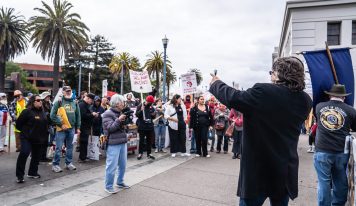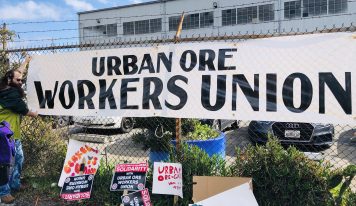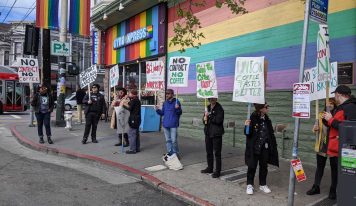Last week, we had the pleasure of stealing some time with newly elected State Assemblymember Alex Lee. Lee was elected in November to represent District 25 and its 460,000 residents. As the youngest member of the assembly, at just 25 years old, and the only openly bisexual assemblymember, he is a candidate who has based his campaign around bringing a voice to the unheard. After surviving a nine-candidate primary election last March, Alex won his district by 73 percent of the vote, including part of the Silicon Valley. He ran as a proud member of the Democratic Socialists of America (DSA) and did not accept corporate campaign contributions. In this interview, Assemblyman Lee shares experiences from his campaign, his first actions in office, and more.
So, I’ve got a few little icebreakers, and then some more kind of personalized topical questions. So, just right off the bat: What are you reading? Do you have a book that you’re currently reading?
What am I reading right now? Hmm… I read a lot for my job, you know. [Laughs] Well, for fun, it’s a Sci-Fi book that I got recommended called The Dispossessed by Ursula K. Le Guin. But it’s about, like, literally capitalism and governments in space.
Nice, I like some Philip Roth style work myself. And who do you personally idolize politically?
Well, it’s hard not to say typical people like Bernie Sanders. AOC [Alexandria Ocasio-Cortez], and Ilhan Omar. Those are people who I think are able to navigate the institutions while also staying true to their very Left values, and also being able to communicate those ideas effectively to people. I think that is really valuable. So that is who I like to role model myself after.
Let’s get into some questions about your recent political run and what you’ve been up to now. Most people your age aren’t very politically active. So, what has inspired you to be politically active? And, what kind of role do you even think government should play in the life of young people?
I think it’s an unfortunate and tired trope today that young people are not into politics. I think what we see is that younger people, generally, are not engaged traditionally: they are not typical donors and are not typical voters. But you can’t say that we are not engaged. We are just engaged in our own way. We do care about different things. I think that young people just aren’t engaged in the exclusive ways built by the people who don’t represent themselves…which tend to be richer, whiter, straighter people. So that is just how it is.
But, I think the role of government should be to expand and make itself more inclusive rather than just demanding that people of color or younger people just come to them. Rather, we should make it more accessible and inclusive to all communities and demographics.
I definitely agree. And I understand your points about the donors being of just one class and that being more inclusive in decisions is important. Now, as a progressive leftist, what makes you confident in your political direction?
What makes me confident is that I know that what I’m doing is for the people––like myself. I am someone who has struggled economically in the richest state in the richest country in the world. And I am not doing this for personal gain or status or whatever. I’m doing this for the people. As long as I stay grounded in that, I know I will be doing what is right. I will continue to be a champion of the people.
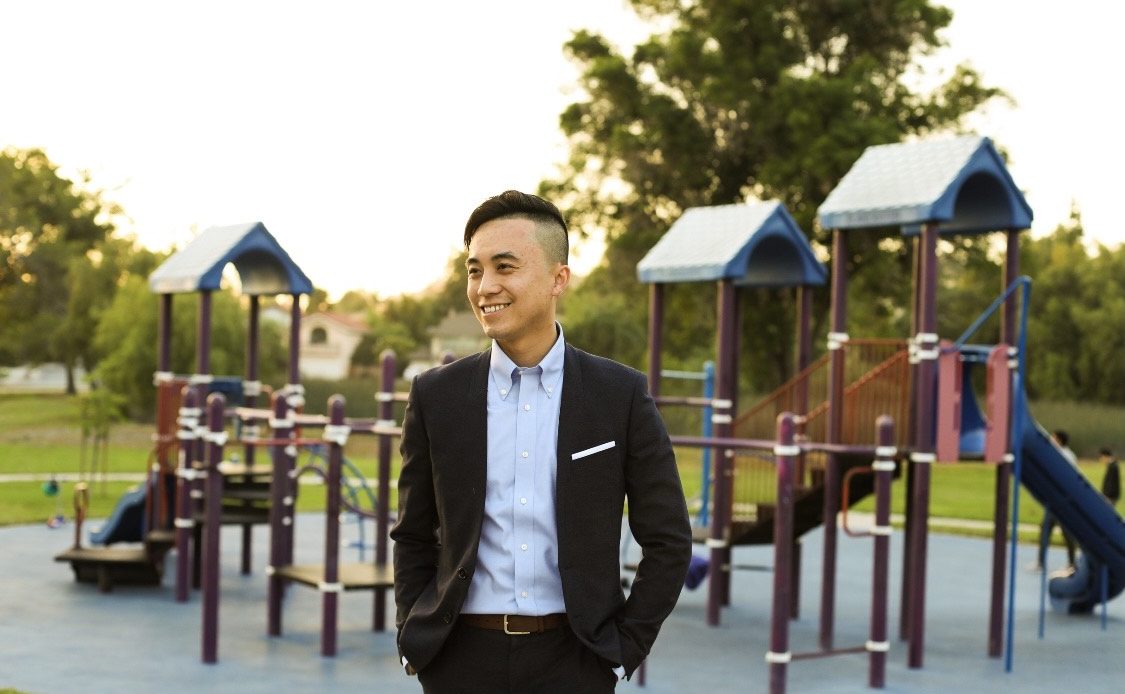
I see you went to UC Davis and was the student body president. What is your impression of the health of the state’s higher education system? Because I see it as in an ailing state.
Ailing state… I would agree. But, well, objectively speaking, when the California Master Plan was set out to deliver higher education, it was to educate the workforce at little to no cost. And that was essentially a reality before––you’ve heard those stories “oh I had a part-time job and I paid my way through college.” That would be impossible to do nowadays. In one sense, I think the financial accessibility of the system has failed. I also think we are turning our institutions of higher learning, more and more, into institutions of greed that are motivated more so by arbitrary capitalistic incentives and economic growth rather than the growth of our society and the personal growth of the people. You know there was a time, even in this country, when people went to universities to advance themselves, to learn skills, and to potentially do research. Then hopefully that would contribute to stuff like raising their own economic standards or professional gain. But I don’t think that was ultimately the only goal for a few reasons. Like originally they were academics and intellectuals and did research. [Laughs] One of the pleasures of being UC Davis Study Body President is that you learn way too much about how UC governance is so screwed up. I think we have strayed away from that original vision objectively and so yes, I would agree it is ailing.
I’ve also read a little bit about what you want to do in your role as an Assemblymember, about how you want to update the technology of the State Government. Can you give any examples of how that might work?
Oh yes––I can give you two tangible examples. One is that even in the State Capitol, for a very long time, they were still using Windows XP, right? That’s exactly how far behind we are. And one more specific example of how the state is not staying up to date with these technologies is EDD, Employment Development Department. So they process all unemployment claims and were using a processing software from decades ago, and this has led to so many issues with EDD. And their computer software is just one thing. There are so many processes and technologies that are antiquated. It’s no wonder so many folks are denied their benefits, they’re not getting them in time, the agency loses data, all sorts of things. All this because we are not up to date in California. Another example is that people on unemployment insurance, often, or I think it may be all cases, are given a debit card from Bank of America––which in itself is a whole problem. It is a card that is not enabled with a chip. You know, like a lot of credit cards out there today have those now. Well, if they don’t have a card with a chip, then they are very susceptible to types of fraud, which has happened. And that was a reason why we shifted to chip implementation around the last decade or so. This just highlights a few ways how being behind on technology can really be a disservice to people.
Wow, those are great examples. And definitely having somebody like Bank of America, that could be problematic.
Yes. Bank America is a whole other landmine. But I will say that is why I am working to co-author an assembly bill with one of my colleagues to update EDD and to address some issues with Bank of America.
So, let’s talk a little bit about the bill you have already introduced: AB 20, which is about banning businesses from donating to political candidates. I know your campaign didn’t take any large donations like that. Please speak to how important that issue is to you as a candidate, and how important that bill is to California.
Oh, it is vital, absolutely vital. So, Assembly Bill 20 will do two things: it will build a publicly financed election system, enabling everyday Californians to contribute financially to candidates they help. The second thing is that it bans corporations from donating directly to candidates whether they are running for school board, city council, assembly, or governor. All the way up and down.
And that is because fundamentally corporations exist as for-profit entities. This has led to many issues like the privatization of our society and driving our elected officials to make their decisions for profit. That’s why we have so much wealth inequality, so much poverty, and the corporate representation that exists. This is hyper-emphasized in a capitalist society. That is why it is necessary to cut off the influence of corporate special interest on our elected officials. I personally do not take any money from corporations, billionaires, fossil fuel industries, or developers. I do not do it because I do not believe in having, even subconsciously, the influence of their money in my decision making process.
That’s wonderful, and is great integrity for your campaign. So let’s talk about your district, you know, who you’re going to be representing. From what I understand it’s a heavily Asian district. But that’s perhaps unfair to say as a whole. How do you view the community that you represent?
So, I represent Assembly District 25, that’s even where I grew up. It includes portions of the East Bay and South Bay, and I represent Alameda and Santa Clara County. And, yes, it is one of two assembly districts in the entire state that has a plurality which is majority Asian American. I myself am Asian American as well. And I think that there is a lot of great diversity in my district that is not dominated by white people. But actually, it is also a younger district. The average voting age is about 50 years old. It might sound old, but compared to the rest of the state it is much younger than the average. It’s a younger and a diverse district. I think I represent that in a lot of ways.
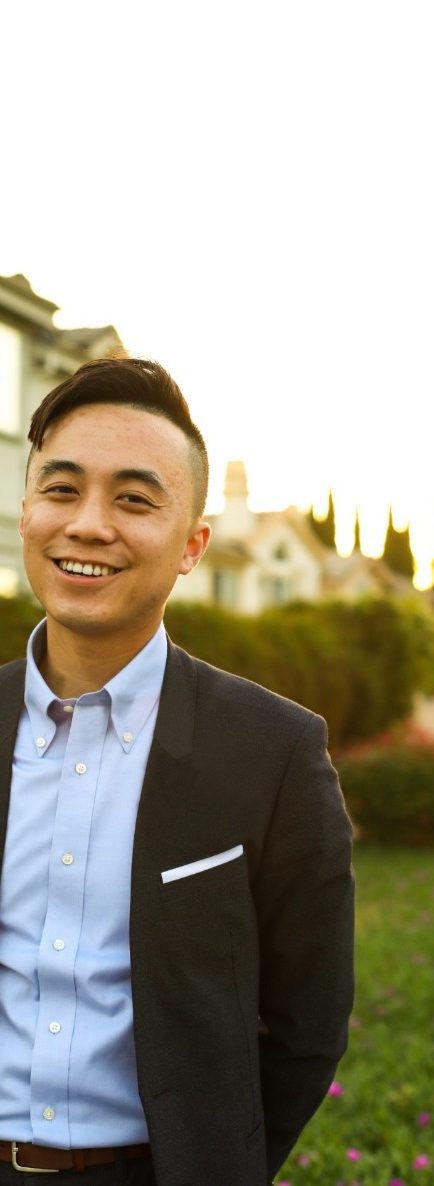
Certainly it appears you do. So, do you think that your ideas of being “for the people” are good for uniting that type of diversity, or maybe in the sense that a Democratic Socialist platform is perfect for that type of district?
Oh, absolutely I think so. The thing that sticks to me most about my district is that in many ways it is exemplary of the vanishing middle class. A lot of folks in my district, much like me, were born into the middle class, you know around the 90s, mid to early 2000s, and we are rapidly facing prospects where we are poised to become poorer than our parents or grandparents. I think that standpoint is so important when building allyship across the middle class, whether it is lower-income working class, or middle income. It is just so important in building as much solidarity as possible, with those like LGBTX, Latinx, and just all demographic life in order to build a better economic sense of feeling.
So to potentially counter that, from what I understand is that your district is home to a lot of tech workers as well. The location is there on the other side of Silicon Valley. How do these companies and these workers, who create these insane profits and represent these massive companies, fit into your agenda and decision making?
Ultimately, right, whether you work in a factory or work in a field, or for Tesla, which is in my district, you are still a member of the working class which does not share equally the benefits of the labor it contributes. And I think especially with the recent success of the Alphabet Workers Union, the workers who are unionizing in the Google-YouTube affiliated corporations, they are showing that worker organizing, especially Leftist organizing, has real potential in the heart, in the belly of the beast, of Silicon Valley. And I think we can build on that solidarity with the people who, traditionally and conventionally, do not see themselves as part of the workers movement…because it is so hard to awaken that kind of class consciousness. It is necessary to really reclaim the fruits of our labor.
The tech workers definitely do still fit into that classification. So, let’s change gears a little bit. I see that you commute to Sacramento on Amtrak through your Twitter account. And I think that’s really cool. Can you speak to the larger transportation problems that we have in California. Or even how in the Bay Area with how much traffic there was pre COVID? It seems like transportation is an issue that you care about.
Oh, I absolutely care about it. I am also sitting on the Transportation Committee in the Assembly, as well. Transportation in the Bay Area, and in California is awful…compared to any other metropolis area in that world that is similar in population, density, what have you. They have far better options for transportation for their people than just a domination of cars, and it is so important to make sure that people have the freedom of mobility. Because one, you can bring about a shift in having combustion engine vehicles. These are top contributors to lower air quality, producing other forms of pollutants, and ultimately, to climate change.
Secondly, you’re forcing people, who might otherwise be better off not spending money on a car, on insurance and repairs. These people could be taking public transit which is far more efficient. This disproportionately affects a lot of people who are often lower-income too. And there are so many more different ramifications around it. So, that is also why I am committed to being a model of behavior by taking public transportation as much as I can. Even though transportation in this country and California is absolutely awful, I try my best. I think it’s important because we need people who make decisions about transportation to actually take public transit.
Let’s talk a little bit about climate change then. How do you balance that huge issue as just a State Assemblyman? How does that fit into your daily concerns or your daily thought?
I think environmental justice affects everything we do, especially when you talk about transportation, energy, or even when it comes to housing. All of these things are interconnected. Well you know, in California, it’s a double-edged sword. California is the fifth-largest economy in the world, so what we do really does matter. The carbon footprint we produce matters. So, my commitment in the State Assembly is that I am already working with my colleagues on a California Green New Deal. This is something we are slowly working on and figuring out what that looks like at the state level.
But my emphasis is especially on housing and transportation, in which climate change is connected in many ways when you think about solar panels, windmills, and sustainable, environmental connections. But it’s so much more important how we move people, and where people move to and from. How we build our environment is so integral to climate change policy because it involves our energy…it involves pollution. In that regard, I am going to be a strong proponent for social housing as a public driven option to build and construct housing to get people housed at cost and as a social good, and not as an investment to a for-profit developer. That’s going to be a big subject matter of mine.
And if you had a magic wand, what policy would you fix immediately in California? And do you think you might be able to piggyback off the last question. I’ve heard you say previously that you think Costa-Hawkins is one of the biggest problems. So maybe, if you could wave that away, why would that be so important too?
Well I don’t know that if I had a magic wand that I would use it on Costa-Hawkins. I think Costa-Hawkins is actually a symptom of a larger problem.
So, Costa-Hawkins just to be brief about it. Essentially, it is a huge roadblock that is impeding further rent control in the state, and even for cities. It is just a huge roadblock.
And I think that if I did have a magic wand, what I would do is commodify housing all together, or I should say, decommodify land. I believe personally, as a strong Leftist, that land and natural resources are a communal good. And this is obviously reflected in many different cultures, but unfortunately not Western culture. Land is a communal good and should be viewed that way. In some regard, I would say that Western society acknowledges it. I mean even here in California, it is shown by how you pay property tax, right. And in my mind, that’s an acknowledgement that the land belongs collectively.
So if I could, the magic wand would be to decommodify and de-privatize land, and really think about how like: “Maybe I own a structure that’s on land and I am leasing it from the collective. And then that is now my responsibility to take care of it.” Now that’s how I view it. And I think, ultimately, social housing is one of the many chances we have to decommodify and deprivatize land use.
That’s definitely something where growing social housing would be a phenomenal first step to even reaching that.
It’s phenomenal in the sense that it is a cultural mindset. Because in reality, if you were to decommodify land there are a lot of changes that could happen. Just when you would walk outside, there would be a noticeable change and that is why it is important.



